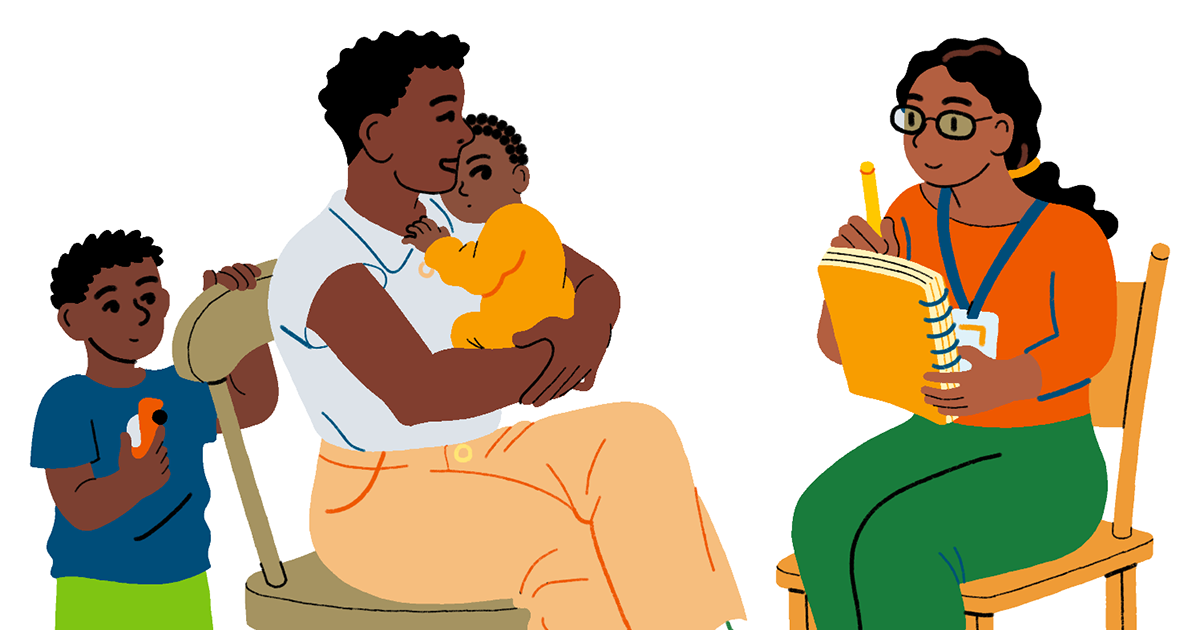Theory of Change for Coordination and Individualization of Family Support Services in Head Start Programs

Head Start uses a whole-family approach to support the well-being of children and families with low incomes. As a two-generation model, Head Start provides comprehensive services for families and their children from birth through age five, and parenting and family support services for parents. Intentional alignment and coordination across those services is expected to lead to positive outcomes for families and their children. This brief introduces a theory of change focused on one distinct and understudied aspect of the comprehensive services provided by Head Start’s model—family support services—and how the coordination of those services is thought to result in improved outcomes for the whole family. Through family support services, Head Start programs aim to help families identify and reach “their goals and dreams” by directly providing them with or referring them to services that support those goals and build on individual strengths. These support services address needs regarding education and employment, financial capability, housing and food assistance, emergency and crisis intervention, substance use treatment, physical health, and mental health, among others. Determining families’ strengths and needs, identifying relevant support services, communicating with service providers, and helping families access services—that is, the coordination of family support services—in combination with the child-focused services, is expected to promote families’ safety, health, and economic security.
Key Findings and Highlights
The theory of change includes coordination and individualization of family support services, parent outcomes, and family outcomes.
Coordination and individualization of family support services include building and maintaining partnerships with families and with community providers.
- Partnerships with families refers to family support services staff members’ work in Head Start programs to build a supportive, trusting, and stable partnership with each family through ongoing relationship-building activities. Family support services staff members conduct an assessment to identify each family’s strengths and needs, and use that information to work with parents to develop a set of parent- and family-specific goals, which can include economic, educational, or health-related goals. The goals inform the specific support services for the family and together with the identified services make up an individualized family partnership plan or agreement. Next, the family support services staff member connects the family to services and follows up on progress.
- Partnerships with community providers includes family support services staff members’ work to identify resources available within a local community, and develop and maintain partnerships (formal or informal) with the organizations that provide those resources so that families can be referred to them.
The development of partnerships with families and community providers allows Head Start family support services staff members to connect parents with a range of support services that are responsive to their needs and goals—meaning that the services are both comprehensive in nature and individualized to a particular family.
The interaction among these two types of partnerships and the connection to support services leads to a set of outcomes for a parent. A parent’s improved outcomes are expected to lead to a set of family outcomes, specifically improved family well-being and improved parent-child relationships. Finally, both improved parent outcomes and whole-family outcomes are thought to lead to improved child outcomes—meaning that children are safe, healthy, learning and developing, engaged in positive relationships, ready for school, and ultimately successful in school and in life.
Finally, three sets of factors are thought to influence how Head Start programs approach coordinated family support services and the outcomes that might be seen in parents, families, and children: characteristics of parents/guardians and families, characteristics of Head Start programs and staff members, and the external environment.
Document Details
Maier, Michelle F. 2023. “Theory of Change for Coordination and Individualization of Family Support Services in Head Start Programs.” OPRE Report 2023-304. Washington, DC: Office of Planning, Research, and Evaluation, Administration for Children and Families, U.S. Department of Health and Human Services.







